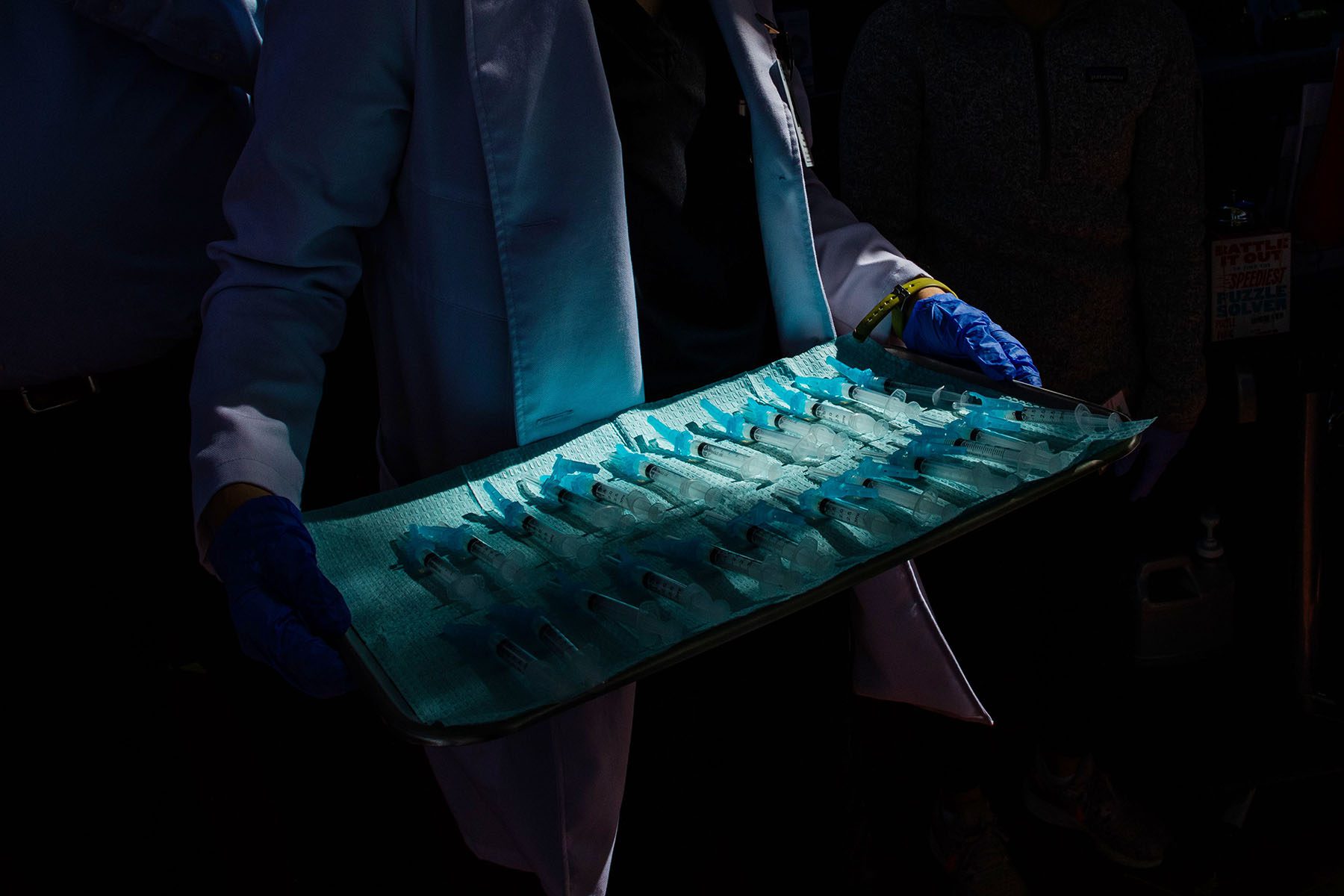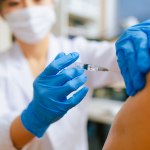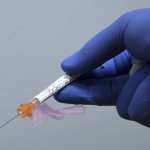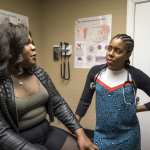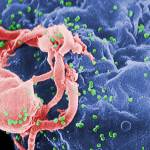Thirty-two percent of LGBTQ+ adults say they are worried that getting vaccinated against COVID-19 could negatively affect their medication for treating or preventing HIV, according to a survey by the Human Rights Campaign and a California-based market research firm. The HRC did not poll to determine what percentage of those concerned adults had actually had the shot. Experts told The 19th that there is no evidence the two treatments interact negatively.
This worry among people living with HIV/AIDs is very concerning, experts say — especially among Black and Latinx LGBTQ+ people, who are disproportionately affected by HIV and who the HRC found to be more worried about COVID vaccination impacting their HIV treatment. Among Black LGBTQ+ people surveyed in the online July poll, 39 percent were worried, while 34 percent of Latinx adults said the same.
Henry Masur, director of the critical care medicine unit at the National Institutes of Health clinical center and a leading researcher in HIV/AIDS, says there is no evidence that mRNA COVID-19 vaccines or Johnson & Johnson’s vaccine interact at all with HIV medications, including the preventive drug PrEP.
“There’s no biological reason that I can at least imagine as to why that should interfere or interact with your anti-HIV drugs,” Masur said. “And in fact, there is no data that I know of, in addition to plausibility, that would suggest that there is any interaction.”
People living with HIV were also included in clinical trials for all COVID-19 vaccines currently approved in the United States, per the Centers for Disease Control and Prevention.
“We’ve really found no indication in the data that people who are living with HIV or on PrEP, have any increased risk of side effects or negative outcomes after getting vaccinated,” said David Goodman-Meza, assistant professor of infectious disease at UCLA who currently treats patients at the UCLA Vine Street clinic.
This pocket of concerned people is significant within a population that has largely trusted COVID-vaccine research. The vast majority of the roughly 1,500 adults polled by HRC were fully vaccinated — 91 percent. A separate survey by the census found that most LGBTQ+ Americans polled from late September to early October had either been fully vaccinated or planned to be, and the Kaiser Family Foundation found in its COVID-19 vaccine monitor this summer that LGBTQ+ adults are more likely to be vaccinated against the coronavirus than straight and cisgender adults.
New research shows that those living with HIV who are vaccinated tend to be older. In a peer-reviewed paper expected to be published this week, Perry Halkitis, dean and professor of biostatistics and urban-global public health at Rutgers School of Public Health, and his colleagues found that vaccinated people living with HIV were older on average than those who hadn’t been vaccinated. They had also been living with HIV longer.
“You think about the people who have been living with HIV longer, which are often older people, which are often people who were alive prior to 1996 before antiviral therapies came along, these people see the devastation that the virus can cause,” he said.
Using a national sample, Halkitis’ research found that 65 percent of roughly 500 participants living with HIV said they had received at least one dose of a COVID-19 vaccine between March and May.
The CDC urges people living with HIV to get vaccinated, especially because they may be more likely to get severely ill from contracting the coronavirus, though Masur also pointed out that the data proving that link is not clear. The CDC found in February that LGBTQ+ people in general report higher rates of underlying health conditions linked to severe COVID-19 symptoms.
Another piece of misinformation that has proliferated is the belief that HIV medication can protect against the virus, which has not been proven. Some clinical trials are currently examining whether HIV medications can treat the coronavirus, as well as how effective other drugs are to treat the virus, per the CDC.
“Being on HIV medications isn’t a shield against COVID,” Goodman-Meza said.
Although the HRC found that overall, 60 percent of LGBTQ+ adults they polled have a great deal of confidence in the research and development of COVID-19 vaccines, that trust broke down by gender and racial demographics.
Among Black LGBTQ+ adults, 42 percent expressed that same confidence, while 53 percent of Latinx LGBTQ+ adults felt the same. Transgender and bisexual adults were also slightly less likely (56 percent) to trust the development of COVID-19 vaccines.
Goodman-Meza said that lack of education around vaccination ultimately means that health care providers have failed to effectively reach people where they are.
“People who are Black or Latinx also have the biggest disparities in access to healthcare or HIV care,” Goodman-Meza said. “By not getting vaccinated, you’re just kind of setting yourself up for these unwanted complications.”
Public health officials must focus their messaging to reach vaccine-hesitant people living with HIV, experts say — especially for gay and bisexual Black and Latino men, who are most at risk in the United States. From 2015 to 2019, HIV diagnoses among gay and bisexual men in the U.S. remained stable for Black and Latino men, while diagnoses for White men decreased by 17 percent, per the CDC.
“I think there’s an inherent system problem. Best care models are typically instituted in heavily White areas,” Goodman-Meza said. When trying to access care, Hispanic people can face language barriers, challenges with accessing insurance, or even fear retribution because of their immigration status.
While going to their doctor or health care provider to talk about taking HIV medication and getting vaccinated is ideal, patients can also talk to counselors, social workers, and staff at local HIV/AIDS service organizations for information.
Officials should use peer education when possible to persuade Black and Latino men living with HIV to get vaccinated against COVID-19 — and stress the risks of not getting vaccinated, Halkitis said.
“I think that the messaging has just been one size fits all. And we know that’s not true,” he said.
Charleigh Flohr, senior research manager at HRC, said that more data about how LGBTQ+ people are experiencing the pandemic — and how they feel about getting vaccinated — is essential to reach the community and keep people healthy.
“If we don’t have data to convince and to demonstrate to the community that things are safe, it’s just going to reproduce the health equity issues,” Flohr said.
From the Collection
